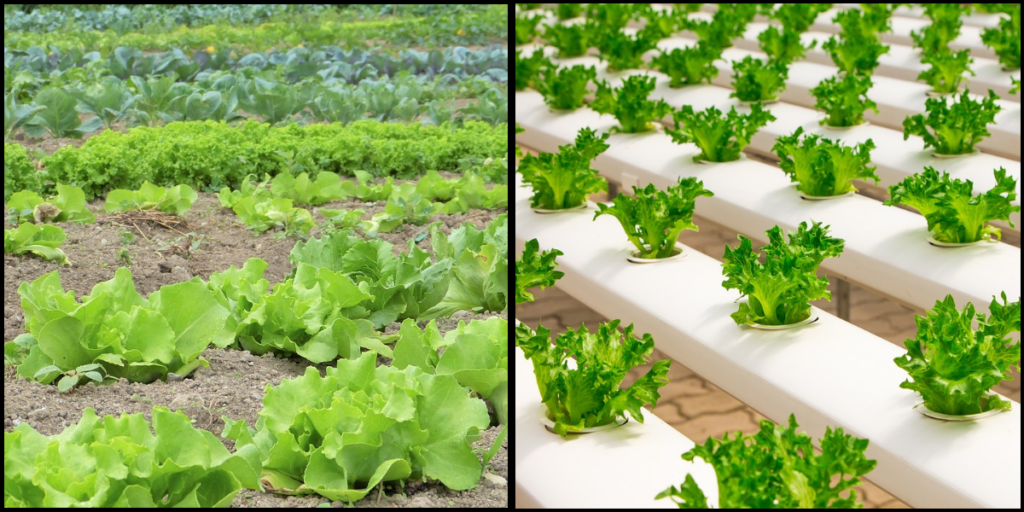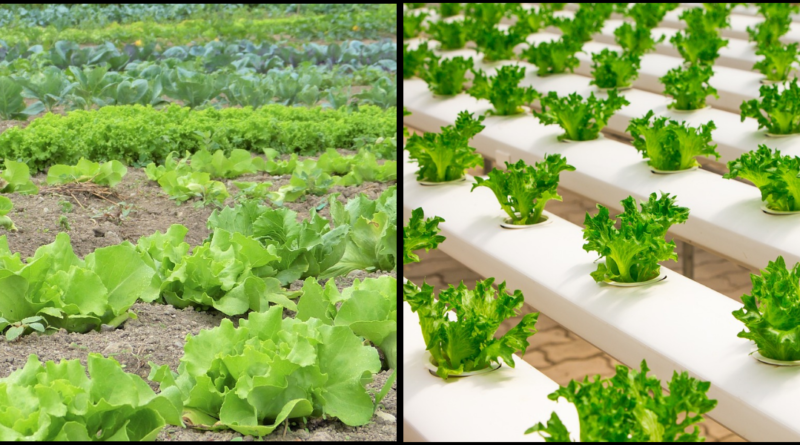Organic Produce: And its Health Benefits
Organic Vegetables: The Green Way to Health
In a world where people lead fast-paced lives and place a greater focus on overall well-being, organic nutrition is under more scrutiny than ever. Organic food stands out among the many options as a health-promoting option that provides a means of obtaining sustenance that not only promotes environmental sustainability but also individual vigor. Let’s explore the complex web of advantages to human health that come from eating organic fruits and vegetables.

Benefits of Consuming Organic Produce:
Nutrient Density Unbeatable:
- Increased crop nutrient density is a direct outcome of organic farming practices, which place a strong priority on soil health.
- Research continuously demonstrates that organic produce has higher concentrations of vital vitamins, minerals, and antioxidants than fruit farmed conventionally.
- Consuming organic food guarantees that each mouthful packs a powerful nutritional punch, promoting general health and vigor.
Enhancing a Stronger Immune System: Going Beyond Nutrients
- Beyond offering the required nutrients, organic fruit supports the immune system’s wellness.
- Organic fruits and vegetables include a variety of well-balanced nutrients that boost immunity and act as a natural barrier against infections and illnesses.
- Eating organic vegetables on a regular basis becomes an active measure to keep your immune system strong and working properly.
Organic Produce helps Lowering Antibiotic Resistance Risk
- Antibiotics are not regularly used on animals or in crop production while using organic agricultural methods.
- Selecting organic products helps the worldwide fight against antibiotic resistance by promoting an agricultural system that puts health first.
- Customers who support organic products are taking an active part in a global campaign to eradicate a serious health issue.
Diminished Ecological Effects:
- Organic farming has less of an impact on the environment because it doesn’t use synthetic chemicals.
- Organic farming techniques help to improve the general health of ecosystems by reducing air and water pollution.
- Choosing organic products allows customers to take part in the shift towards a more environmentally conscious and sustainable food system.
Reduced Allergic and Sensitivity Risk:
- Conventional agricultural methods may include the use of artificial chemicals and pesticides, which might cause allergies or sensitivities in some individuals.
- With no artificial ingredients, organic vegetables could be a safer option for people who are allergic to certain things, leading to a more comfortable and healthy living.
Organic Produce helps Long-Term Fertility of Soils
- Organic Produce techniques like crop rotation, composting, and cover crops, organic farming approaches concentrate on enhancing and preserving soil fertility.
- By preventing soil damage and promoting long-term fertility, this dedication to soil health protects the sustainability of agriculture and helps to create a more flexible food system.
Minimize your Carbon Footprint using Organic Produce:
- Organic farming often has a lower carbon footprint than conventional farming since it uses less energy.
- Choosing organic products allows customers to contribute to climate change mitigation by encouraging more ecologically and energy-friendly agriculture methods.
Organic Produce is very useful for Water Quality and Conservation
- Water-conserving techniques are commonly used in organic farming, with an emphasis on effective irrigation systems and water management.
- Customers may help preserve water quality and indirectly support water conservation initiatives by purchasing organic fruit, helping to protect this valuable resource for future generations.
Organic Produce helps Decreased Levels of Antibiotic Residue in Food:
- The regular use of antibiotics is avoided in organic livestock production, which lowers the possibility of antibiotic residues in meat, eggs, and dairy products.
- By selecting animal products that are organic, customers help to encourage better eating habits and slow the spread of microorganisms resistant to antibiotics.
Organic Produce Helps Integrative Health Theory:
- The practice of organic farming includes a holistic health concept that takes into account the interdependence of environmental health, food system health, and human health.
- Choosing organic food is a commitment to a way of life that emphasizes how interconnected these components are, encouraging a more all-encompassing view of wellbeing.
Future Generations’ Holistic Well-Being:
- Consuming organic products has lasting benefits that contribute to the holistic well-being of future generations.
- Consumers create a healthier and livelier planet for future generations when they lead more sustainable lives. This is accomplished by making thoughtful decisions now.
Organic Produce helps Modular Insect Management
- Organic farming promotes a balance between beneficial insects and pests by using natural pest management techniques, including companion planting and biological treatments.
- This method of pest control is more environmentally friendly and sustainable because it uses fewer chemical pesticides.
Personalized Agriculture Techniques:
- A stronger bond between farmers and their crops is fostered by the individualized and hands-on growing techniques used by many organic farms.
- This customized technique often results in higher-quality produce, making food more artisanal and healthful. Farmers are able to adjust their methods according to the specific requirements of each crop.
Organic Produce Promote Sequestration of Carbon in Soil:
- Organic farming methods assist in combating climate change by assisting in the sequestration of carbon in the soil.
- The atmospheric carbon dioxide that is absorbed and held in good organic soils, which act as carbon sinks, reduces global warming.
Impact on Education and the Community of Organic Produce:
- The organic movement tends to be linked to educational campaigns that raise public knowledge of environmentally friendly agricultural methods.
- Selecting organic fruit promotes a deeper comprehension of food systems and their effects on the environment and human health, fostering an informed and involved consumer community.
Animal Ethical Treatment:
- The principles of organic farming encompass not just plant-based goods but also animals. Animals raised at organic farms are treated humanely and are given access to the outdoors and more natural living environments.
- Customers who choose organic meats and animal products are endorsing moral standards that put animals’ welfare first, therefore promoting a more humane and environmentally friendly kind of farming.
Women’s Empowerment in Agriculture:
- Organic farming has been linked to the empowerment of women in agriculture because of its emphasis on community-oriented and sustainable methods.
- In organic farming programs, women frequently hold pivotal positions, therefore promoting agricultural systems that are more equal and inclusive.
Supporting Agricultural Education Advocacy:
- The organic movement is a strong supporter of agriculture education and emphasizes the value of knowing how food is produced.
- Individuals who support organic options are part of a larger movement that values agricultural expertise and encourages users to make wise food choices.
Improved Aroma and Taste of Food:
- Because organic farming promotes healthy soil and organic growth conditions, organic fruit is known for having a richer flavor and scent.
- Choosing organic food entails experiencing the genuine essence of fruits and vegetables, resulting in a more enjoyable and healthful eating experience.
Organic Produce helps Promoting eco-friendly travel:
- Agritourism is embraced by organic farms, giving people a chance to interact with the source of their food.
- Choosing organic food promotes sustainable tourism projects, teaches people more about agricultural techniques, and strengthens ties between rural and urban areas.
Combining Permaculture Principles:
- Permaculture concepts, which emphasize the creation and upkeep of agriculturally productive ecosystems, are frequently integrated into organic farming.
- Using natural resources to their fullest potential, reducing waste, and developing self-sufficient agricultural systems are all achieved through this holistic approach to farming.
Embracing the Variety of Culinary Arts:
- The organic movement celebrates the diversity of tastes and culinary possibilities by encouraging the growth of a wide range of crops.
- Selecting organic encourages gastronomic discovery and a greater understanding of the vitality of nature’s gifts by opening doors to a rich tapestry of tastes.
In summary:
The advantages of choosing Organic Produce are numerous and range from improved personal health to sustainable environmental practices, as well as delicious food and ethical behavior. Opting for organic vegetables beyond being just an eating choice and becomes a powerful statement about living a conscious, responsible, and planet-wide dedication to the interrelated well-being of all living things. As we embrace the many benefits of an organic lifestyle, let each deliberate decision be a step toward a day when happiness, sustainability, and good health coexist quietly in a prosperous world.




